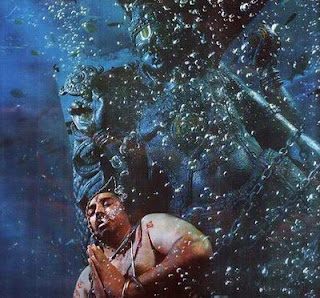
A Balachandar type narrative introduction does not set the tone of the story. Just like the title, the introductory scenes too are misleading. One expects the three lead characters’ plight of faltering career ambitions to unfold into a story like 80s weltschmerz quasi-communist flicks such as Nizhalgal or Varumayin Niram Sigappu. Also, the lead actor Sasikumar’s dark tale Subramaniapuram fresh in mind, one expects a similar brooding or serious story. Surprisingly, Naadodigal is actually an action packed story about three close friends trying to help one of their friends unite with his girl. With some expected and unexpected twists later, the tale ends with a heavy, culturally flawed, yet convenient propaganda about love, friendship, and society.
What strikes instantly about Naanodigal is the dramatised and poorly inspected acting. Almost every performer, save Nallamma (Ananya), acts self-consciously much to the discomfort of the viewer. The problem lies mainly with the director’s possible lack of attention to details. The errors are much easier to notice in the initial scenes when the story doesn’t pick up pace.
By the time you’re willing to overlook that, Naadodigal tells a really interesting story in a totally unexpected angle. That’s primarily the strength of the film, which covers up for the most other sore points, especially the acting. About Sasikumar, except his deep and phlegmatic gaze – which worked well in Subramaniapuram and still does – everything else he does seems like what we have seen in Doordharshan plays from the eighties. Some really clichéd elements too adorn the screen. Sample 1: how do you get a girl to fall in love with you? You threaten her that you’ll throw yourself into the sea. And when she refuses? Of course you jump. Sample 2: when you narrate your sad story of failing love, your friends are supposed to stand upon a hillock at different directions in deeply introspecting poses!
With all these, it is still difficult to be critical to Naadodigal beyond a point. There is something, something, perhaps the story, or the interesting twist, or even the lengthy climactic advice doled to the next generation lovers! Or perhaps one has a soft corner for Sasikumar that’s clouding the judgment. Or may be such things really happen in rural Tamil Nadu, so such counselling is needed, and hence this film itself is needed.
But then one final question to the director: The movie was very interesting and even hilarious at times Mr Samudirakani. But what is your point?
And what is with the title?

